Epidemic game: "Ice Age": the dilemma of people in extreme survival conditions
Written by Gong Zhaohua
The original "Ice Age" was released in April 2018 by 11 bits stadio. After its launch, it was rated as a 16 + game by PEGI due to the large number of disaster plots and social choices that had to sacrifice individuals.
The background of this game is very simple: in the future, a cold wave sweeps the world, and humans have to leave London and other cities to live around heating energy towers in the ice and snow. In the beginning, all resources are limited. As the leader of the people, players must find a way to obtain as many survival resources as possible such as coal, wood, steel and ingredients, and build more developed buildings to ensure that people can continue to survive in extreme environments.
City management questions: What kind of ruler do you want to be?
In the process of survival, players face many choices. Because the time of the game is set to be limited, there is no energy to invest in coal heating and no energy to develop medical technology. In terms of social policy, "Ice Age" offers players some options, some of which are harsh and will cause public dissatisfaction. But if you want to survive, you have to sign these bills.
For example, in the policy there is a child labor bill, which can be signed to hire child labor and put children into work, digging coal mines in the ice and snow or working in kitchens. In the case of labor shortage, if you want to maintain the normal operation of society, you have to make this choice. Otherwise, more people will die from severe cold or lack of food.
Moreover, in "Ice Age", once the bill is signed, it cannot be withdrawn. That is to say, when the game is developed to the middle and late stages and the labor force is sufficient, it is impossible to repeal the original bill and abolish the child labor system. A manager must pay a long-term price for every step he takes.
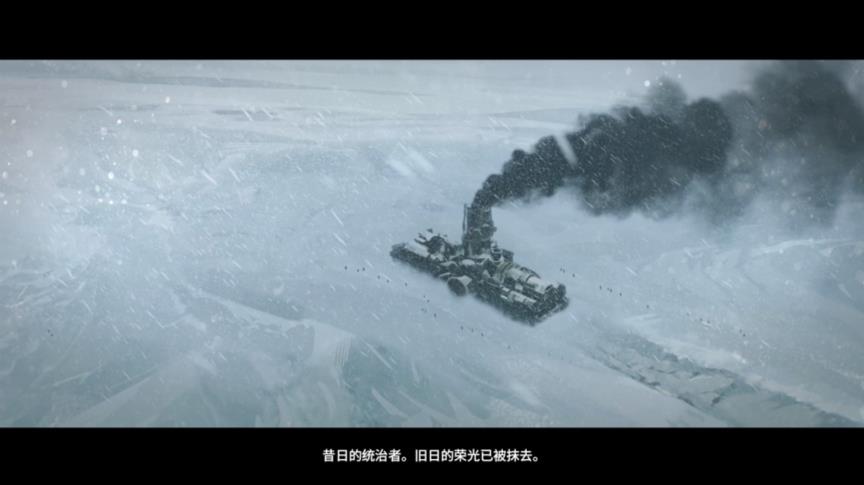
In the main story "New Home", players will encounter an event. The nearby city is confirmed to be destroyed, the expectations of the people for survival have dropped to freezing point, people no longer trust the ruler, and the "London Gang" has emerged. This gang calls on the people to give up the new city around the energy tower and return to London. The ruler’s task is to restore the confidence of the people.
At this moment, two completely different ideologies emerged:
One is a moderate faith plan. Rulers can build churches where people can hold evening gatherings, pray, and distribute food from their reserves to the masses. The other is to establish a surveillance system. After starting this route, players can build prisons, watchtowers, police and whistleblowing systems, and severely punish those who have a negative impact on society. They can also build radio stations and propaganda to keep the people full of hope.
In the game, compared to the first route, the second route is more effective in dealing with difficult modes, so it has become a recommended strategy for many players.
The game was designed to make the player experience the hardship of social choices, so that the player can focus on the individual sacrificed by the whole. In the game content, it has been guiding the player to become a less than ideal ruler. For example, in the new DLC "Last Autumn", the player’s task is to build an energy tower. You need workers and engineers to complete this task together.
However, do you want to build a society dominated by guilds or an elite society that follows the advice of engineers? The former can reduce the risk of strikes, but the workers’ demand is increasing, and sometimes unreasonable plans will be proposed; engineers can ensure the rationality of the plan, but it will cause dissatisfaction among the workers, so you need to establish monitoring towers and foremen to supervise the work of the workers…
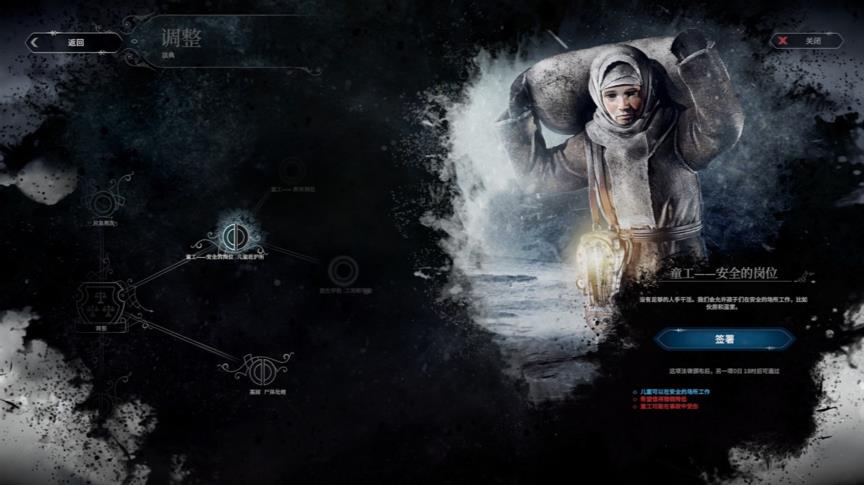
Games and society:
Why not choose not to let anyone die?
As a player, you know that at the end of the game’s plot, a blizzard will come and the construction of the energy tower will save everyone; however, the people in the game do not believe this. Do you choose to tell them the truth (which will reduce the hope value of society), or do you choose to deceive them with propaganda and lies to maintain the hope value of society and work efficiency at a high value?
In the game, most players will choose the latter. This is also a flaw in the setting of "Ice Age": managers don’t pay much for their lies. The people in the game don’t have the ability to see through lies on their own initiative. They don’t freeze to death in the ice because they listen to propaganda and brave the cold to go to work (as long as you build a few heated steam hubs nearby). Even if there is a poet in the city who writes depressing articles, you can expel him or arrange a decent funeral for him, and thus continue to maintain the society’s hope value at a high level. People get sick and have their limbs amputated because of the cold work. You can arrange for factories to produce prosthetic limbs and put them back to work – and this option can actually increase the society’s hope value. This is obviously not in line with individual emotions.
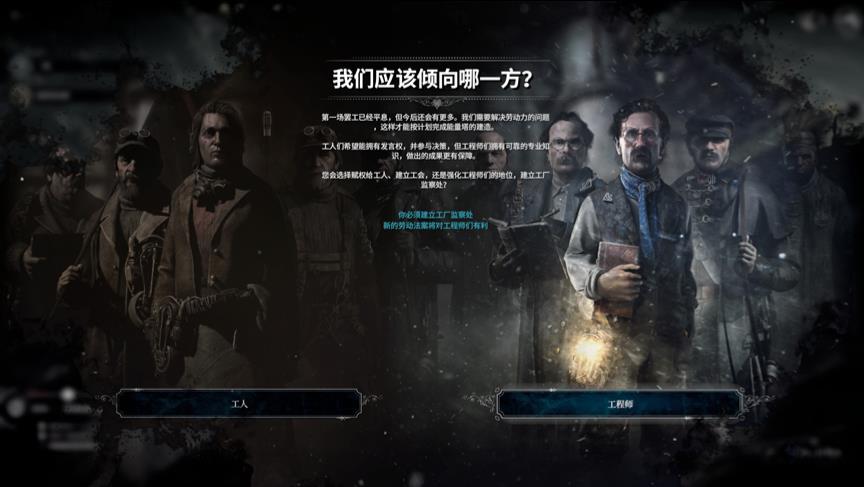
Also, when other refugees come to your city seeking refuge, you can choose three options: option A is to reject all refugees, which will lead to a lower social hope value; option B is to accept everyone, including healthy refugees and sick refugees, which will increase social hope value, but will also increase people’s dissatisfaction value accordingly; option C is to accept only healthy refugees, and let sick refugees freeze to death outside. The last option will only bring positive results, increasing the labor force, reducing the medical burden, and raising the social hope value.
Essentially, "Ice Age" is for players to reflect a society where the people are not ideal citizens, but selfish people who are all about self-survival. If you pay the sick people double rations and take good care of them, the healthy people will be dissatisfied. You isolate the sick people, and the people will be relieved. Therefore, rulers who cater to this popular psychology are more likely to be the winners of the game, whether you use lies, police systems, checkpoints or prisons.
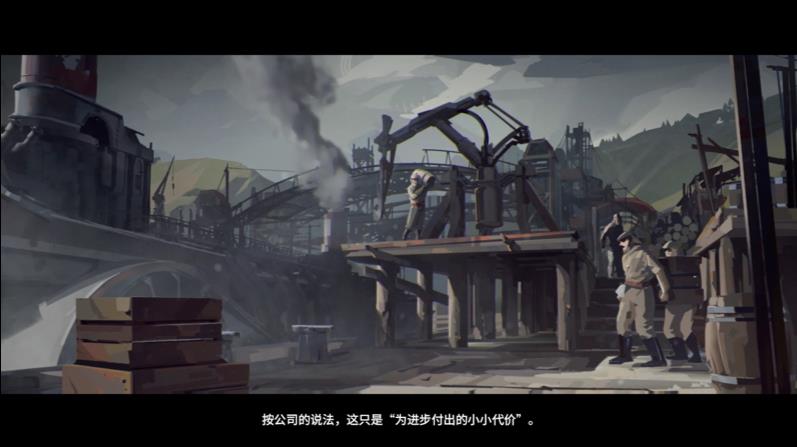
Of course, some people also chose the humanitarian spirit during the game, and made "no one dies" as the hidden victory goal. But the failure rate of this plan is extremely high, especially when the labor force is limited, too much public service investment will make the industrial building understaffed, and finally unable to build energy towers or reserve enough resources, resulting in most of the people freezing to death when the snowstorm arrives. The game also failed.
After having to win at the expense of some people, the story of "Ice Age" ends with a question for players – we won and society survived, but is it really worth it?
This is a question worth pondering, and it is also a plot that has played out continuously in our human history. But in the form of video games, it is quite difficult to really understand this, because the format of video games has caused everything here to be processed in digital form, including people’s dissatisfaction, happiness, resources and productivity, etc., and every living person.
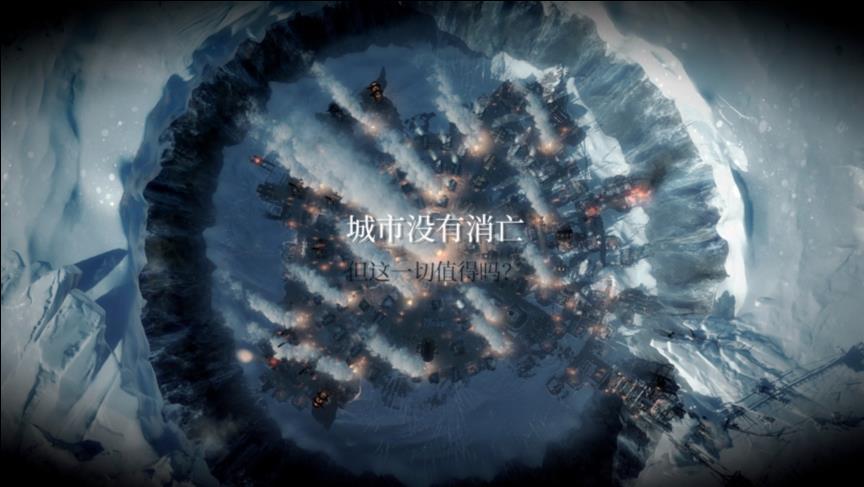
Written by Luo Dong
EditorShu Li Yongbo
Proofreading | Wu Xingfa